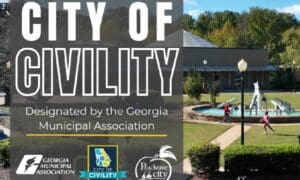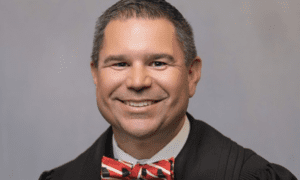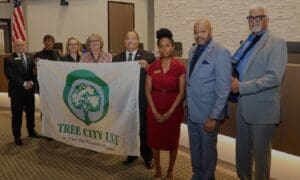Fayette County’s stormwater problems are neither that urgent nor that extensive, says retired biologist Dennis Chase, an occasional Citizen columnist and outspoken advocate for environmental issues.
That caution has been added to the conversation surrounding Fayette County’s proposed stormwater SPLOST (Special Purpose Local Option Sales Tax) that could face voter scrutiny in November.
Chase says the project needs have been significantly overstated.
That opinion was countered Monday by Fayette County Administrator Steve Rapson, who said an accurate evaluation of stormwater utility needs can only be performed by a professional engineer.
Chase contacted The Citizen, saying that in the past few weeks he accompanied Fayette County Water System Director Tony Parrott to look at stormwater problem sites located in north central Fayette. Chase said he selected 60 sites previously identified by county staff as being problem sites. The highest concentration of problem sites, those listed on the county map as poor or failing, was in north central Fayette, Chase said.
“We stopped at 60 locations which totaled 87 structures and 37 pipes of varying lengths. Most of them required the man-hole covers to be pulled and we then noted what was wrong, if we could. Of those 87 structures and 37 pipes, I saw five stormwater structures that needed immediate work and one pipe that needed work. Almost every other structure or pipe we looked needed only minor clean-outs or a bit of minor concrete repair,” Chase said.
“I will tell you that my opinion, based on visits to a few of the identified problem sites, is that no more than 10 percent of the stormwater structures and pipes need anything more than maintenance. The estimates for needed work have gone from $3 million to $5 million then to $10 million and at the town hall meetings it was $15 million. And now (Fayette County Commission Chairman) Steve Brown is trying to gather more than $20 million. There is no such need,” Chase added.
Rapson on Monday said said he respectfully disagreed with the conclusion Chase reached.
“I appreciate Dennis and I think he’s a professional, but he is not an engineer,” Rapson said.
Citing an example, Rapson said until it is determined why some pipes have standing water it is not possible to know the exposure or exact liability that exists.
“That’s why the county needs the analysis,” said Rapson. “I want a professional engineer’s opinion (about the problem areas) and how much it will cost so we can have a definitive cost estimate to take to the voters.”
Rapson said an Request for Proposal is being developed and the forthcoming analysis will be available at the end of June.
That definitive project list will include the 32 large projects that constitute the bulk of the projects associated with the SPLOST proposal, Rapson said.
Chase said that though he spent decades as a biologist with the U.S. Fish and Wildlife Service, a substantial portion of that time dealt with the effects that large projects such as dams and levees and the impact the maintenance of those structures has on the environment.
Chase in his conclusion said the idea of addressing the county’s stormwater needs involves developing a solid approach and a method of addressing the real problem areas.
“There may be a need for a fair amount of money but this is not the way to go about it.”












Leave a Comment
You must be logged in to post a comment.